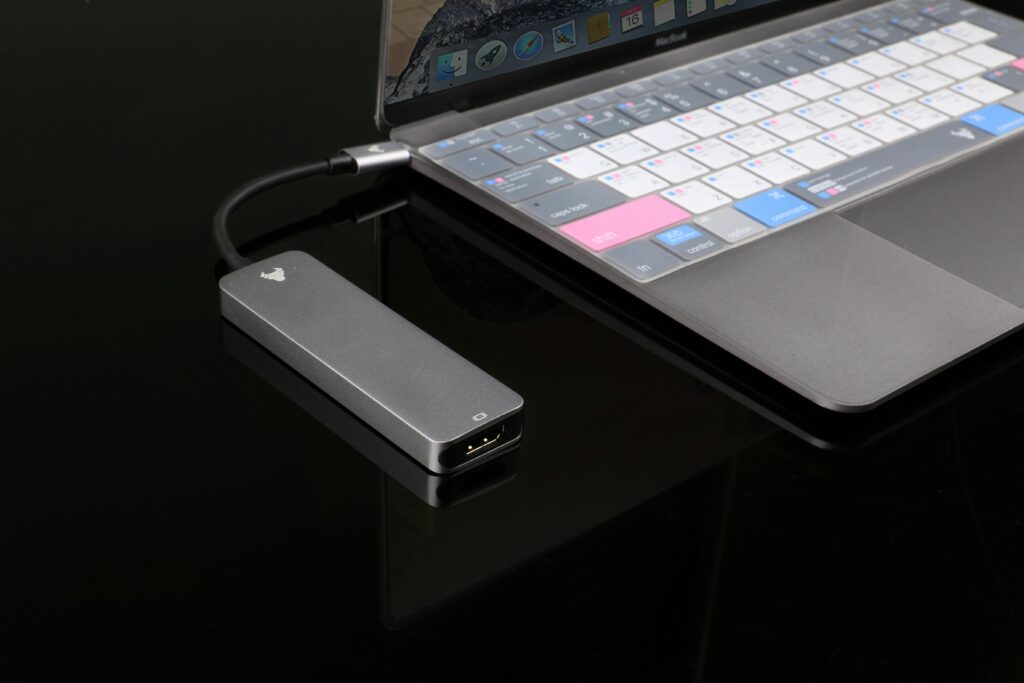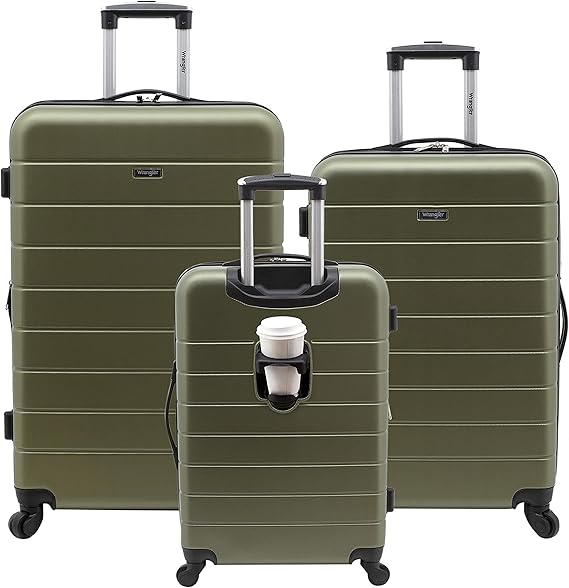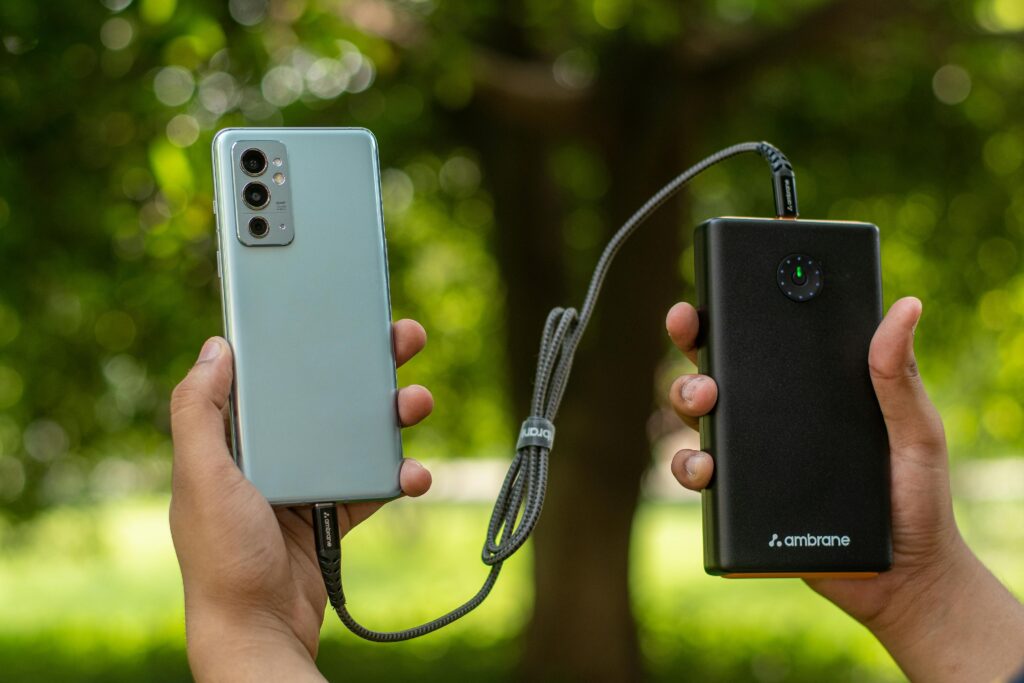
Introduction to Travel Technology
Travel technology refers to the array of gadgets, software, and digital solutions that enhance and simplify the travel experience. This field has seen significant advancements in recent years, fundamentally altering how travelers plan, book, and manage their journeys. From smartphones and mobile apps to artificial intelligence and automated systems, the technological landscape is continually evolving, providing innovative tools that cater to the diverse needs of modern travelers.
One of the notable trends is the increasing reliance on mobile applications that streamline every aspect of traveling. These applications enable users to compare prices, secure reservations, and receive real-time updates on their itineraries, which ultimately leads to a more efficient travel process. Additionally, GPS technology and location-based services offer tourists valuable insights about their destinations, ensuring they can navigate new environments with ease and confidence.
Furthermore, innovations such as virtual and augmented reality are transforming how individuals prepare for their trips. Through these technologies, potential travelers can immerse themselves in virtual previews of destinations, helping them make informed choices about where to visit and what experiences to pursue. Additionally, platforms equipped with AI-powered chatbots are enhancing customer service within the travel sector, providing instant assistance and personalized recommendations tailored to the preferences of each traveler.
As travel technology continues to advance, its importance in enhancing the overall travel experience cannot be overstated. Understanding these tools and how they interact with travel planning processes will enable travelers to maximize their journeys, making them not only easier to manage but more enjoyable. By embracing the latest innovations, individuals can take full advantage of the opportunities that travel technology presents, ultimately enriching their explorations and adventures around the globe.
The Evolution of Travel Gadgets

The journey of travel gadgets has undergone a remarkable transformation, reflecting the progress of technology over the years. In the early days, travelers relied on basic tools such as compasses and maps to navigate their routes. These rudimentary devices served as the foundation for what would eventually develop into a sophisticated array of travel technology designed to enhance convenience and efficiency.
The introduction of the rubber tire in the late 19th century significantly improved transportation methods, paving the way for more comfortable travel experiences. Subsequently, the 20th century marked a period of rapid advancements in travel gadgets. The invention of the portable transistor radio in the 1950s allowed for entertainment on the go, while the introduction of the first portable electronic calculators streamlined financial planning for travelers. These innovations highlighted the growing necessity for compact, user-friendly devices to accompany individuals as they explored the world.
The digital revolution has since reshaped travel gadgets entirely. The advent of personal computers in the 1980s, followed by the proliferation of smartphones in the 2000s, has provided travelers with unprecedented access to information and connectivity. Apps for navigation, accommodation booking, and travel organization have become essential, demonstrating how technology has greatly facilitated various aspects of travel.
Moreover, innovations such as noise-canceling headphones, portable charging devices, and smart luggage have significantly enhanced the traveler’s experience. Smart luggage equipped with GPS tracking and built-in chargers exemplify the integration of convenience and security, addressing modern travelers’ needs. As gadgets continue to evolve, the focus is increasingly on sustainability and eco-friendliness, paving the way for a future where travel technology blends seamlessly with environmental considerations.
Overall, the evolution of travel gadgets reflects a continuous commitment to improving the travel experience. Each advancement not only enhances functionality but also enriches the journey for travelers worldwide.
Key Travel Technologies You Should Know About

As the travel landscape continues to evolve, technological advancements have played an essential role in enhancing the travel experience. From convenience and comfort to safety, several key travel technologies have emerged as indispensable tools for modern travelers. Among these, portable chargers, smart luggage, travel apps, and wearable technology stand out.
Portable chargers have become a must-have for today’s traveler. With the extensive use of smartphones and tablets for navigation, booking, and entertainment, ensuring that devices remain charged throughout the journey is crucial. Portable chargers, or power banks, provide a reliable solution, allowing travelers to recharge their devices on the go without relying on power outlets. This ensures uninterrupted access to essential travel information and communication.
Another innovative technology in modern travel is smart luggage. These suitcases are equipped with features like built-in GPS tracking, weight sensors, and USB charging ports. This ensures that luggage can be monitored in real-time, providing travelers with peace of mind and reducing the risk of lost bags. Additionally, features such as automatic locking mechanisms and personalized identification contribute to enhanced security.
Travel apps have transformed how individuals plan and experience their journeys. From itinerary management to real-time flight updates, these applications centralize vital information, making travel less stressful. Moreover, many travel apps offer insightful recommendations for dining, accommodation, and local attractions, further enriching the travel experience.
Finally, wearable technology has made significant strides in enhancing travel safety and convenience. Devices like smartwatches can provide notifications, track fitness levels, and even facilitate contactless payments. This allows travelers to maintain an effective overview of their health and travel schedule with minimal effort. By integrating these technologies into travel routines, individuals can maximize convenience and security during their journeys.
The Benefits of Smart Travel Gear

Smart travel gear has revolutionized the way travelers experience their journeys, making them not only more enjoyable but also significantly more efficient. One of the primary benefits of such technology lies in the time-saving advantages it offers. For instance, smart luggage equipped with GPS tracking allows travelers to monitor their bags’ location in real-time, diminishing the anxiety often associated with lost luggage and eliminating the need for additional time spent at baggage claims or inquiries.
Enhanced communication represents another critical advantage of incorporating smart gear into travel plans. Modern portable devices and apps facilitate seamless connectivity, allowing travelers to stay in touch with family, local services, or even travel companions. Just imagine having instant access to translation apps, which can break down language barriers when visiting a foreign country, streamlining interactions and allowing for a more immersive experience.
Moreover, safety features are integral components of smart travel gear. For example, some backpacks and travel accessories now come with built-in anti-theft technology, such as lockable zippers and RFID-blocking compartments. This technology effectively secures travelers’ belongings, reducing the risk of theft and providing peace of mind during explorations. Additionally, personal safety devices, like smart emergency alarms, can alert others in case of unforeseen situations, enhancing the overall security of the traveler.
Organization is also vastly improved with smart travel gear. Products like packing cubes with technology-enabled features help keep travelers’ belongings neat while providing insights on weight limits and packing efficiency. For instance, digital scales embedded in these packing systems allow users to ensure they do not exceed airline weight restrictions, thereby reducing the potential for additional fees and stress at check-in.
In summary, the integration of smart travel gear offers numerous benefits ranging from time-saving features to enhanced safety and organization, ultimately transforming the travel experience into a more efficient and enjoyable endeavor.
Choosing the Right Travel Technology for Your Needs

When considering how to enhance your travel experience through technology and gear, it is essential to evaluate various factors that align with your individual needs and preferences. Primary among these factors is your travel style. Whether you are a backpacker seeking to minimize weight or a luxury traveler wanting to ensure comfort, your preferred approach will guide your technology choices. For instance, lightweight, multifunctional gadgets may be suitable for adventurous travelers, while those who prioritize convenience may opt for more robust devices.
Your destination is another critical factor. Consider the infrastructure and availability of services at your chosen location. In urban settings, you might find that smartphones with local SIM cards or portable Wi-Fi hotspots could significantly enhance connectivity, whereas in remote areas, power banks, solar chargers, or offline-capable devices could prove invaluable. Thus, matching your travel technology to the destination conditions is crucial for a seamless experience.
Budget and usage frequency also play significant roles in deciding which travel technology to invest in. Determine how often you plan to use the gear and its longevity before making a purchase. High-quality items tend to offer better durability and features, making them worthwhile investments for frequent travelers. Moreover, consider the potential return on investment based on how much value the gadget would bring to your journey. Research reviews and comparisons, ensuring you are making informed decisions that suit your travel needs.
Finally, prioritize the essential gadgets that resonate most with your travel ambitions. This process requires thoughtful reflection and can involve creating a list of must-have items versus nice-to-haves, which ultimately leads to a more fulfilling travel experience enhanced by the right technology.
Navigating the Potential Pitfalls of Travel Gear

As travel technology continues to evolve, it offers numerous benefits that can enhance the journey. However, there are several challenges and pitfalls associated with using travel gear that travelers must navigate. One prominent issue is the risk of overpacking. With the plethora of gadgets available, it can be tempting to carry numerous devices, leading to increased weight and bulk in luggage. To mitigate this risk, it is advisable for travelers to carefully assess their needs, leaving behind unnecessary gadgets and opting for multipurpose devices whenever possible. This not only lightens the load but also simplifies the travel experience.
Another significant challenge comes from potential gadget malfunctions. Electronic devices, which we often rely on while traveling, can sometimes fail. From battery issues to software glitches, these malfunctions can hinder communication, navigation, and access to vital information. To combat these potential breakdowns, travelers should ensure their devices are well-maintained before embarking on a journey. Regularly updating software and carrying portable chargers can help keep devices functional throughout the trip.
Digital privacy and security also pose considerable concerns for travelers utilizing technology. Public Wi-Fi networks can often be unsecured, making devices vulnerable to hacking and data theft. It is crucial for travelers to be aware of their digital environment. Using a virtual private network (VPN) can provide a secure connection by encrypting data, protecting sensitive information from potential cyber threats. Moreover, enabling two-factor authentication on important accounts adds an additional layer of security.
By being cognizant of these challenges associated with travel gear, such as overpacking, gadget malfunctions, and digital privacy issues, travelers can take proactive measures. This ensures they can enjoy the advantages of modern travel technology while minimizing the risks, thus facilitating a smoother and more enjoyable travel experience.
Sustainable Travel Tech: A Rising Trend

In recent years, the growing awareness of environmental issues has led to a significant shift in travel technology towards sustainability. As travelers become more conscious of their carbon footprints and the environmental impact of their escapades, there is a rising demand for eco-friendly gadgets and practices in the travel industry. This trend is characterized by innovative products designed to minimize waste, conserve energy, and promote sustainable tourism.
Among the notable advancements in sustainable travel technology are solar-powered chargers, reusable water bottles equipped with filtration systems, and energy-efficient travel accessories. These gadgets not only help travelers reduce their environmental impact but also enhance their experiences by providing convenience and reliability. For instance, solar chargers enable adventurers to keep their devices powered up while exploring remote locations, using renewable energy sources instead of traditional electricity, which ultimately reduces reliance on fossil fuels.
The impact of sustainable practices extends beyond individual travelers; the travel industry as a whole is increasingly adopting eco-friendly initiatives. Major airlines are investing in research to develop more fuel-efficient aircraft, while hotels are implementing energy-saving measures such as smart thermostats and water-saving fixtures. Additionally, many companies in the tourism sector are emphasizing partnerships with local communities and ecotourism initiatives that support conservation efforts, preserving the natural beauty that attracts visitors.
As technology continues to evolve, travelers can anticipate even more innovative solutions aimed at sustainability. From smart luggage that tracks its own location to apps that promote carbon offsetting, the future of travel technology is focused on reducing the environmental toll of tourism. This ongoing transformation reflects a broader commitment to sustainability, as both travelers and industry stakeholders work together to shape a more eco-conscious future for adventures around the globe.
Personal Experiences: Travelers Share Their Favorite Gadgets

Traveling has evolved significantly over the years, particularly with the advent of technology that enhances the overall experience. Many travelers attribute a smoother journey to specific gadgets that have become their go-to travel companions. For instance, Sarah, an avid solo traveler, praises her noise-canceling headphones for transforming long flights into opportunities for uninterrupted comfort. She recounts a flight where she struggled with engine noise until she made the decision to invest in this essential gadget. The tranquility afforded her allowed for a refreshing napping experience, ultimately rejuvenating her for a busy itinerary ahead.
Another enthusiastic traveler, Mark, highlights the importance of portable chargers in his travel gear. He recalls a particularly hectic day in Paris when he relied heavily on navigation apps. With the power draining rapidly, he felt a wave of anxiety as he approached a critical juncture in his journey. Fortunately, he had his portable charger on hand, enabling him to keep his phone charged and functional throughout the day, allowing for seamless exploration of this vibrant city.
Additionally, Lisa, who frequently travels with her family, shares her appreciation for travel safety gadgets. She suggests using smart luggage locks, which offer peace of mind during layovers and crowded terminals. Lisa describes a recent incident where she left her luggage unattended for a moment. Knowing her belongings were secured with a smart lock allowed her to enjoy a meal without worry, thus highlighting how such technology can alleviate stress during travel.
These personal experiences emphasize how crucial travel technology can be in enhancing comfort, convenience, and safety while on the go. From noise-canceling headphones to portable chargers and secure luggage solutions, the right gadgets can make a significant difference in any traveler’s journey.
The Future of Travel Technology

As we look towards the future of travel technology, it is evident that innovations such as artificial intelligence (AI), augmented reality (AR), and significant advancements in transportation will transform how we explore the world. These emerging technologies are set to enhance the overall travel experience, making it more efficient, immersive, and enjoyable for travelers.
AI is poised to play a pivotal role in personalizing travel experiences. By leveraging machine learning algorithms, travel agencies can analyze user preferences and provide tailored recommendations for destinations, accommodations, and activities. Chatbots powered by AI will enhance customer service and streamline booking processes, ensuring that travelers receive immediate assistance and support throughout their journey.
Augmented reality is another exciting area that holds tremendous potential for the travel industry. Imagine exploring historical sites with an AR application that overlays information about the architecture and events that took place there. This technology can create more engaging and educational experiences, allowing travelers to connect with their destinations on a deeper level. Moreover, AR can enhance navigation in unfamiliar locations, ensuring that tourists can easily find their way around.

Transportation is also set to experience a revolution thanks to advancements in technology. The development of autonomous vehicles and flying taxis may redefine urban travel, reducing congestion and improving the overall efficiency of transportation systems. Additionally, high-speed rail and hyperloop technology promise to dramatically cut travel times between major cities, making long-distance travel more accessible and convenient.
In conclusion, the future of travel technology is bright, with numerous innovations on the horizon that are likely to enhance the traveling experience. As these technologies continue to evolve, they will reshape the industry, providing travelers with new ways to explore, connect, and experience the world around them.




